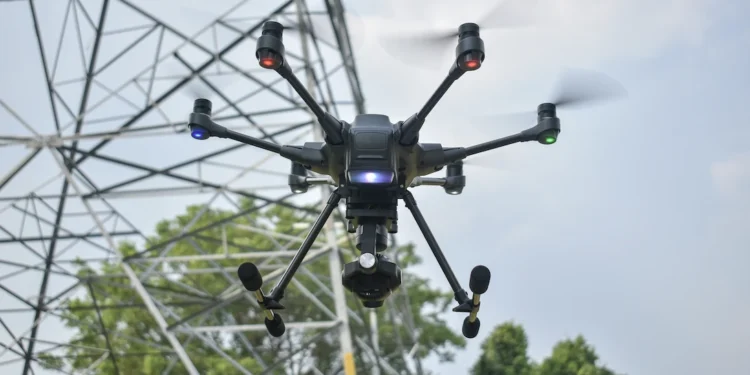Belgium, (Brussels Morning Newspaper) Zipline, the world’s largest drone logistics service, operates distribution centers in Rwanda, Ghana, Japan, the US, and Nigeria, with signed agreements to begin service in Cote d’Ivoire and Kenya.
This technology has gained popularity in recent years due to its potential to revolutionize the logistics and transportation industry by providing faster, cheaper, and more efficient delivery services.
Delivering healthcare and food
The California-based startup has partnered with hospitals and Sweetgreen salad chain to deliver goods in a 16km range within 10 minutes.
The new short-range service is designed to let customers in several US cities receive prescriptions, lab tests or custom-made salads. Before the official launch in Ann Arbor (Michigan), Tacoma (Washington), and Salt Lake City (Utah), Zipline is planning another 10,000 test flights.
Michigan Medicine, an institution at the University of Michigan, is one of the new hospital partners which believes the new commercial partnership will at least double the number of prescriptions it fills each year for patients because of the service.
“We estimate that once Zipline launches, most of our patients will be able to have their prescriptions delivered in just a few minutes,” said Marschall Runge, Michigan Medicine’s CEO quoted by the Financial Times. “That’s an absolute game changer for people with conditions like diabetes, where going without medicine for even an hour could turn serious.”
The new service is based on its Platform 2 (P2) Zip drone, which uses a system of wires that lets down the package inside a cute little mini-bus-looking container the company describes as a “delivery droid.” The package is sent down in a self-propelled droid capable of pinpointing its landing to an area as small as a patio table.
“Rural healthcare is a challenge in every country in the world, including in the US … You now see much bigger and wealthier countries like the US using Rwanda as a role model,” said Zipline’s CEO Keller Rinaudo Cliffton.
It is said that the use of drones can also help reduce traffic congestion, lower carbon emissions, and improve safety by reducing the number of delivery trucks on the road.
Ghana, Nigeria, Africa
Since its founding in 2014, Zipline has completed more than a half million deliveries. The bulk of its operations is in Ghana, Nigeria, and Rwanda, where delivery drones aptly dispatch emergency blood deliveries at 100km per hour. As of September 2021, more than 75% of blood deliveries in Rwanda outside of Kigali used Zipline drones.
H.E. Prof Anyang’ Nyong’o, the Governor of Kisumu County, a Kenyan port city on Lake Victoria praised the region’s significant efforts in improving the overall healthcare delivery to the Kenyan people.
“It is heartwarming to note, therefore, that our mission of achieving universal health coverage is on course with this historic partnership which will ensure that no one is left behind as a result of their location,” said Nyong’o.
In April 2019, the company began using drones to deliver vaccines, blood, and medicines in Ghana.
Despite promising results, there are also concerns about the safety and privacy implications of using drones for deliveries. These include potential technical challenges, such as battery life, range, and accuracy.
Regulations are being developed to address these concerns, and it is likely that drone deliveries will become more common in the future as the technology continues to improve and become more affordable.
With the Covid-19 pandemic, Zipline launched emergency operations in the US in 2020 to supply medical supplies for healthcare workers. It also worked with Pfizer to deliver Covid-19 vaccines.
The private startup is backed by Baillie Gifford, Temasek and Fidelity, among other partners.




